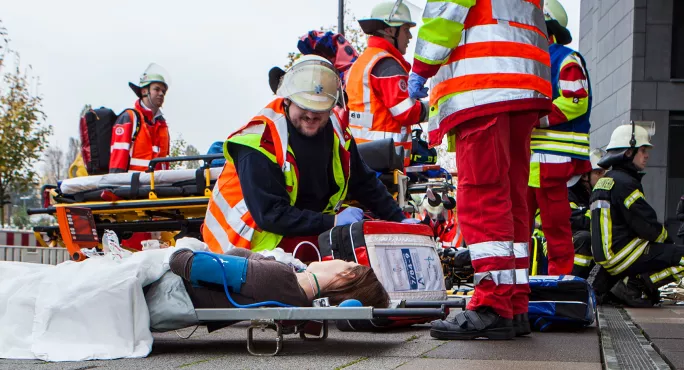Disastrous events like the Manchester Arena bombing, the Grenfell fire and the Southport attacks all showed how when a crisis hits, schools often become places of refuge, coordination and recovery.
This means that schools and trusts increasingly have to be ready to be advocates for our pupils, families and communities, and contribute meaningfully to the wider civil contingencies framework.
This, in turn, means leaders need the skills required to handle such fast-moving situations and engage in responses involving police, fire and health professionals.
Given this reality, I recently decided to attend an intensive five-day Multi-Agency Gold Incident Command (MAGIC) course, held at the College of Policing.
Taking command in an emergency
The programme is designed to prepare senior leaders to take on strategic command roles during major incidents and to operate effectively within multi-agency strategic coordinating groups.
These courses are traditionally attended by senior police, fire and ambulance leaders. However, course leaders are increasingly recognising the critical role of schools and trusts in emergency response and the need for leaders to be prepared in the event of a crisis.
It was certainly a tough week but it was incredibly rewarding, with a mix of learning and interactive exercises as well as talks from Dr Anne Eyre, a survivor of the Hillsborough disaster and a renowned emergencies and disaster sociologist; Dany Cotton, the officer in charge of London Fire Brigade’s response to the Grenfell Tower disaster; and Alan Goodwin, an author of the Kerslake Report into the Manchester Arena attack.
For me, a highlight of the week was a large-scale, immersive simulation conducted in an interactive command suite. We were challenged to coordinate a strategic response to a simulated plane crash affecting local infrastructure, schools and communities.
The scenario involved school closures, environmental hazards, loss of utilities and major disruption to communities and local businesses. These are all the kind of pressures that education leaders must be ready for in a real crisis.
Embedding the learning
Government guidance on emergency preparedness in education is evolving and leaders must be proactive and understand that we are not on the periphery of emergency response but central to it.
From safeguarding and communications to logistics and leadership, schools are frontline responders, too.
As a result of this new reality and the learning from the course, we have set up a Critical Incident Working Group at Creative Education Trust. This brings together colleagues from across the organisation, beyond traditional education roles - including specialists in finance, IT, estates, facilities and school leadership.
The aim is to develop a robust preparedness framework that prioritises the safety of children while strengthening our ability to respond swiftly and effectively in a crisis.
Practical measures include the creation of emergency “grab bags” for schools - including items such as site maps, key government guidance, school blueprints, lists of the locations of first-aid kits and fire exits, and draft agendas to guide Strategic Coordinating Group meetings.
We will also be rolling out role-specific training for all staff, and the introduction of structured decision logs for critical and major incidents.
These tools not only enhance transparency but also ensure alignment with our multi-agency partners, reinforcing our readiness to act as trusted, capable contributors to local and national emergency response.
‘It could happen here’
We’re determined to be even more prepared, responsive and aligned with our partners across the public sector.
As we often say in safeguarding, “It could happen here,” and in emergency preparedness, “A worst-case scenario is only the worst case - until it becomes reality.”
The MAGIC course is helping to build a diverse cadre of leaders ready to meet that reality with confidence, coordination and care. I hope that many more education leaders will take part.
Louis Donald is an executive education director at Creative Education Trust
You can now get the UK’s most-trusted source of education news in a mobile app. Get Tes magazine on iOS and on Android





